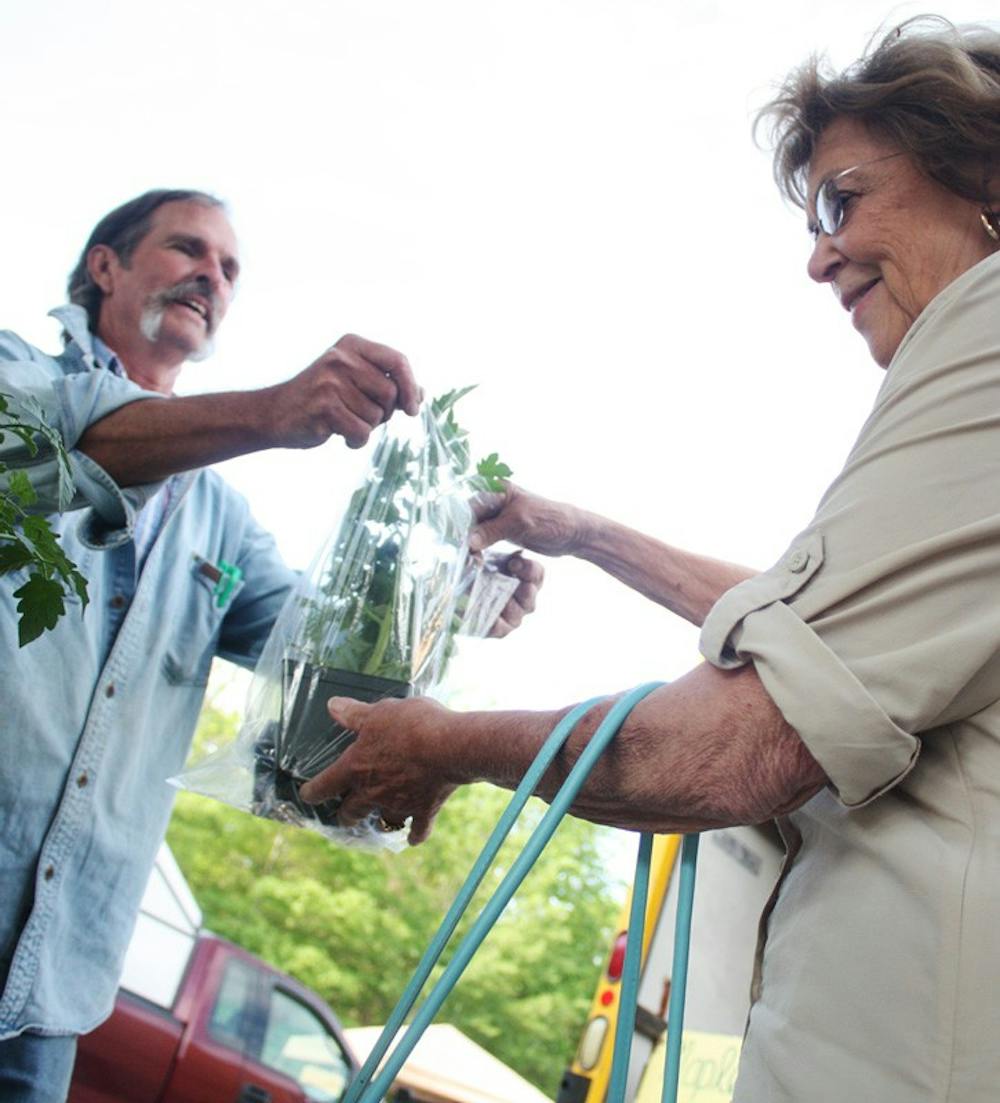Shoppers at the Carrboro Farmers’ Market will no longer be limited to paying with cash.
The Carrboro Farmers’ Market will begin the Common Currency Program on May 1 in an effort to broaden its customer base and attract underprivileged residents.
The program will allow participants of the federal Supplemental Nutrition Assistance Program, formerly the Food Stamp Program, purchase food at the farmers market.
The assistance program gives underprivileged families allowances in the form of electronic food stamps. Participants are given Electronic Benefit Transfer cards that work like debit cards and can only be used to purchase food.
Previously, the market only accepted cash.
The farmers market will allow participants to exchange the federal food assistance money for tokens that can be exchanged for food.
The market will also begin accepting debit and credit cards.
Market manager Sarah Blacklin said she expects the program to expand the customer base the market caters to.
“We just think this is just going to be another way that more people can come to the market,” she said.
The market worked closely with Leaflight, a Chapel Hill nonprofit focused on the development of local food systems and food security, in getting the program started.
Since 2004, Leaflight has been working with farmer’s markets around the state to allow them to accept federal assistance benefits as well as debit and credit cards, said Robert Andrew Smith, executive director of Leaflight,
Under its 21st Century Farmers’ Markets Program, Leaflight has provided the service to 11 farmers markets across the state, with four more set to join this spring, including the Carrboro market, he said.
“We evaluate markets with the highest likelihood of success based on community need,” he said.
Blacklin said that the farmers market has also been working with numerous other partners in the community, including the University.
Nutrition professor Alice Ammerman, director of the UNC Center for Health Promotion and Disease Prevention, helped the market get a grant for funding and expects the program to help lower income consumers gain access to fresh, locally grown food.
“It will broaden the base of people shopping at the market,” she said.
Cathy Jones runs Perry-winkle Farm in Chapel Hill with her husband, Mike Perry, and sells food at the farmers market. She said she expects the Common Currency Program to have a positive effect on her farm and the community.
“I just think it will bring more people who haven’t been able to afford it before.”
Contact the City Editor at citydesk@unc.edu.
Market adds new way to pay

Ken Dawson sells vegetables and plants to Carolyn Hogan at the Carrboro Farmers’ Market on Saturday. DTH/Nushmia Khan


